About a year after I declared my economics major, my friend Austin introduced me to a piece of the internet I’d never before seen…economics raps. The first one he showed me was called “Fear the Boom and Bust” and features Keynes and Hayek battling over how to respond to economic crises.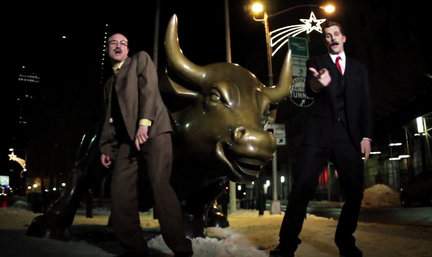 The creators, John Papola and economist Russ Roberts, actually ended up producing a second video, featuring lyrics such as:
The creators, John Papola and economist Russ Roberts, actually ended up producing a second video, featuring lyrics such as:
[Keynes] We could’ve done better had we only spent more. Too bad that only happens when there’s a world war…
[Hayek] The lesson I’ve learned: it’s how little we know
The world is complex, not some circular flow.
I think these raps are great, because not only do they convey economics, but they also are seen by a fairly wide audience. (6.1 and 3.7 million views respectively)
These videos recently popped up in my Facebook feed after I liked some economic meme pages, and that made me start thinking, how fun would it be to see one of my professors do something like this? My next thought was, there’s no way they’d do it unless there was a sufficient incentive, and I’m guessing me asking “pretty please” wouldn’t be enough. After a while though, I thought about how I could actually look at something fun like this through an economic lens.
I settled on the idea of a reservation price, which for suppliers translates to: how much they would have to be paid in order to sell a good or service. So if a friend ever asked you, “How much would I have to pay you to do x?” they were crudely assessing your reservation price. In the traditional market sense, reservation price generally represents the cost of production to suppliers, so any price above the reservation price would result in producer surplus.
Since I had no idea what it would take to convince an econ professor to actually make an econ rap, I decided to ask them. In economics, directly asking someone what they would be willing to pay, or in this case accept, is called contingent valuation. After emailing the economics faculty, I received 5 responses out of 8, or a 62.5 % response 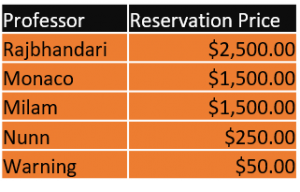 rate. With this information, we can actually build a rudimentary supply curve, as the reservation price serves to outline at what price professors would be willing to supply econ raps. Graphically, this comes out to look like this.
rate. With this information, we can actually build a rudimentary supply curve, as the reservation price serves to outline at what price professors would be willing to supply econ raps. Graphically, this comes out to look like this.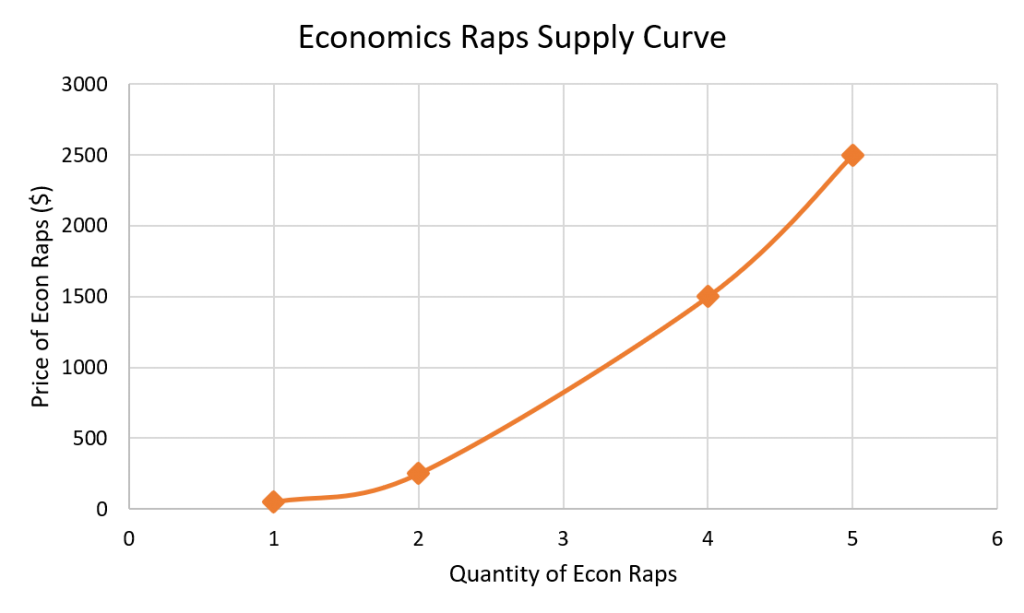
When I saw this data, I decided to ask senior economics majors what their willingness to pay for econ raps would be, so I could paint a more complete image of what the market would look like. In the end, I emailed 33 econ majors and received 11 responses for a 33% response rate. With the willingness to pay information, I could build a corresponding demand curve for econ raps.
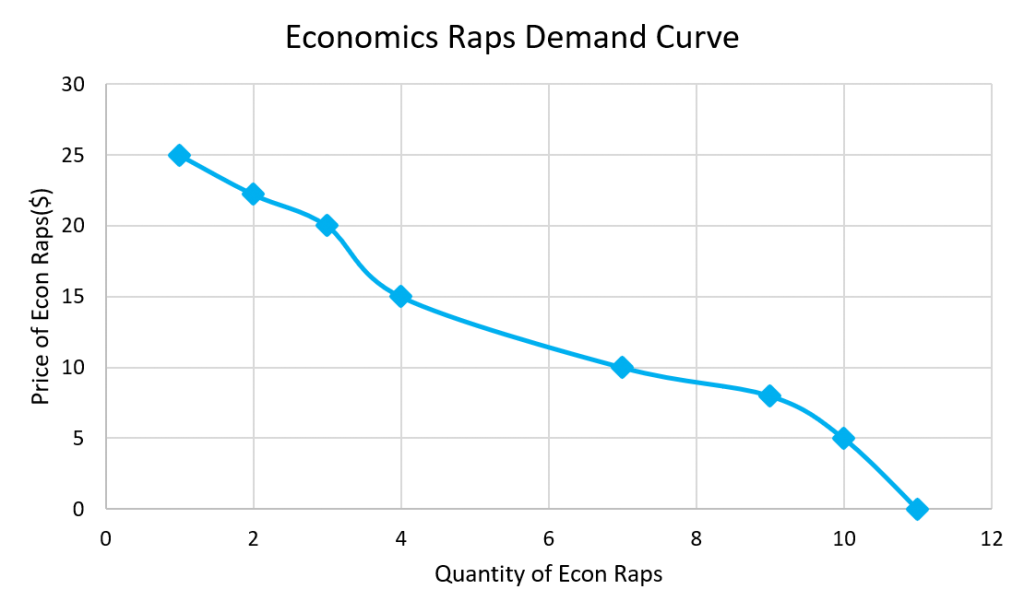
Astute readers may notice, there is no single willingness to pay (WTP) which meets or exceeds a professor’s reservation price. This makes intuitive sense in that we haven’t seen any econ raps being produced. Graphically, this curve would look like this.
While no single consumer is willing to pay a sufficient price, one of the benefits of the “sharing economy” is that consumers can work together to fund projects they would like to see. Kickstarter anyone?

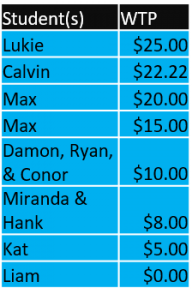
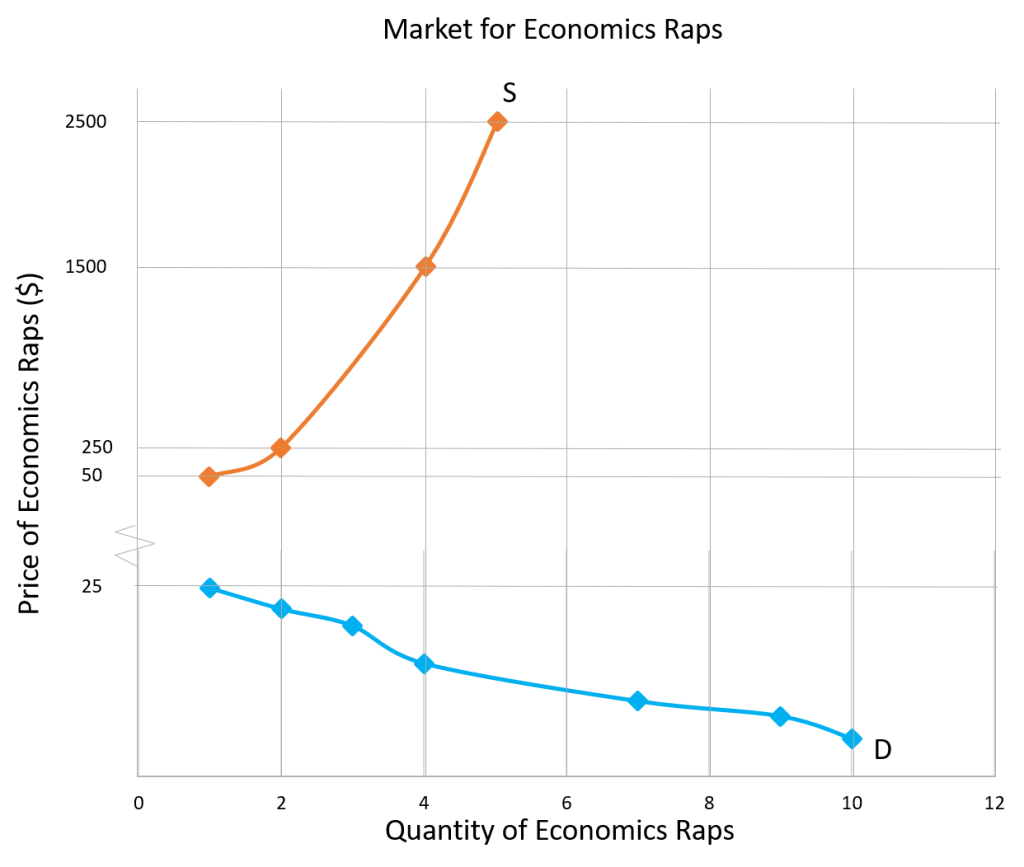
Ah. Great stuff here Max. Though I must point out (perhaps motivated by my desire to see Matt rap) that a rap is likely a non-rival good. Lukie consuming it doesn’t prevent you from also consuming it. Hence, demand should be aggregated vertically rather than horizontally. Let the rapping begin!